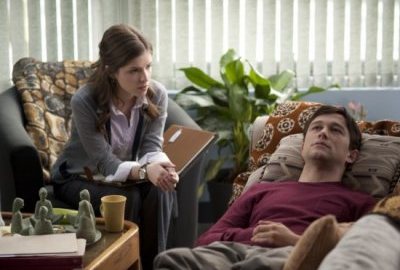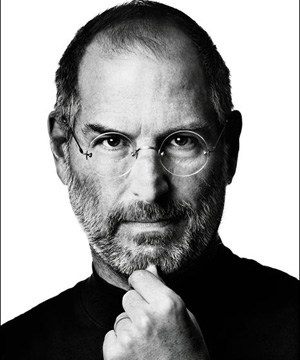Love, Death, and 50/50 (The Movie)

50/50 is a pretty profound movie. It’s also as perfectly cast as MONEYBALL, apparently because they were cast by the same person.
MONEYBALL, of course, is about the attempt to impose rational control on a children’s game, on not leaving the outcome of the baseball season to chance. Players are like cards. If properly counted, a game of chance becomes a game mastered by human calculation.
But the big game of chance, of course, is any particular human life. Each of us, we really know, exists for a moment between two abysses. And who knows how long his particular moment will last? From a certain view, each of us is an absolutely contingent accident in a universe absolutely indifferent to personal existence. It’s not just here today, gone tomorrow. Each of us has no certainty about even getting to tomorrow.
50/50 is about a particularly risk-averse young man (of 27) in sophisticated, hip Seattle. He attends scrupulously to those risk factors that might extinguish his existence. He’s all about the right diet and exercise. He won’t even drive because he’s seen the fatality statistics for drivers. He was raised by a smothering mom, and he’s never told a girl he loves her. He’s never even been to Canada! And of course he can’t stand being late.
So he’s done what he can to exert rational control over his being, to make his personal existence as uncontingent as possible.
Due to an exceedingly rare genetic mutation, he gets cancer nonetheless. He doesn’t get a death sentence, though. He knows from Googling that he has a 50/50 chance of survival. If he were at Vegas, his friend remarks, he’d have the best odds around. But can people live well while being reminded so insistently about how chancy one’s personal future is? The man who’s been avoiding facing risks is now smacked in the face with his fate as a kind of toss of the coin.
The doctor who diagnoses him won’t talk to him about his chances or even try to help him deal with them. He’s not that kind of specialist.
He’s sent to a therapist—a specialist in comforting him, in keeping him in a good mood. Her techniques fail her, until she falls in love with him as a whole person.
At a certain point he tells the therapist that he’s come to terms with dying. We all die, he tells her; you too will die. She regards this truth telling as pathological or alienating, but she lacks the words to talk him out of it.
But his serenity doesn’t last, precisely because he’s reminded that his impending death isn’t certain. His chemo having failed to arrest the cancer, his only choice is to have a very high-risk operation that might well kill him, but could also conceivably cure him. The operation gets the job done is the decisive respect, and he’s very lucky to get to live.
Along the way, he’s reconciled with his caregiving mom and his father with Alzheimer’s (both of whom he’d been avoiding), learns about deep or true friendship (this is the best BROMANCE movie ever) from his buddy who, with all his faults, sticks with him, and gains enough knowledge about personal love to finally give his heart like a man to a woman (the therapist, of course). His personal being becomes a lot less contingent as he becomes less obsessed with risk, and more confident about who he is as a relational being. He stops trying to subject his personal existence to rational control
But this uplifting account neglects what the movie tells us about how little our society offers us in terms of living well with our mortality, So we’re more death-haunted and experience ourselves as more contingent than ever. The dying, we see in various ways, creep us out more than ever. Real loyalty is rare; even the best of friends is somewhat unreliable. This poor guy ends up taking a bus home from chemo! He has quite the minimal support group; he has no tradition or community or extended family or church or God to rely upon for unconditional love and to make sense out of what he really knows. His mom turns out to be good enough, but she’s all the real family he has. His friend (unlike his first girlfriend) turns out to be good enough, but that’s because, despite his vulgarity and all that (he’s a Seth Grogen character), he’s way better than the typical good friend these days.
So one view is that in a free and prosperous and enlightened society the need for religion would wither away, because people would readily find happiness on their own. Another view, of course, is that in such a society death would come to seem more accidental and so more terrible than ever, and people would be increasingly deprived of compensations for their contingency and their mortality.
I’ve avoided talking about the excellent performances to make this post relatively manageable.





